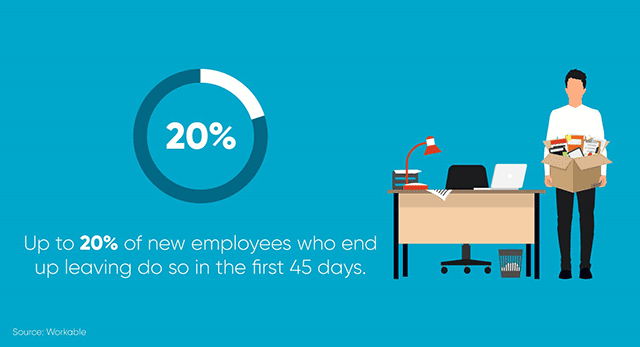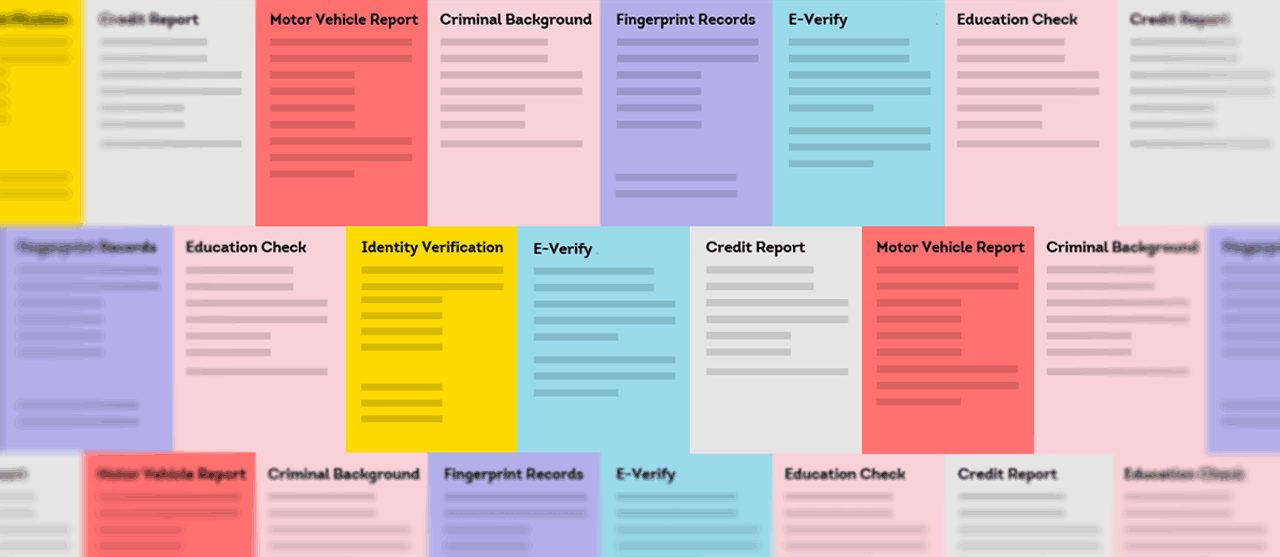Some useful ways to hire a great candidate include using various recruiting sources such as LinkedIn, referrals, and networking events. Writing an enticing job description that includes necessary qualifications will help zero in on desired candidates faster. Don't neglect to examine your small business reputation online and address any issues thoughtfully. Be sure to incorporate thorough interview process that could include an initial phone interview along with follow-on rounds of panel interviews with standardized questions to ensure all pertinent areas are covered. Once a good candidate is identified, vet them with background checks. Finally institute a good onboarding program to orient your new employee and and avail them with necessary resources.
Introduction
Finding the right talent can make or break your business. A great candidate can become a strong employee who improves your company and supports your existing colleagues. The wrong candidate can impact morale, decrease productivity, and cost you money. The U.S. Department of Labor claims that the expense of a bad hire can cost your business 30% of your employee’s first-year earnings. It’s best to take a multi-pronged approach to find top candidates to ensure they’re a talented, technical, and personal fit.
Here are some of the most useful ways we’ve found to search out the best applicants and screen them for potential issues.
Look for Great Employees...in the Right Places
Write a Clear Job Description
Keep Tabs on Your Company’s Reputation
Vet Prospective Hires with Pre-Employment Screening
Refine Your Interview Process
Create Efficient Onboarding and Training Processes
Remember that this material is intended to provide you with helpful information and is not to be relied upon to make decisions, nor is this material intended to be or construed as legal advice. You are encouraged to consult your legal counsel for advice on your specific business operations and responsibilities under applicable law. Trademarks used in this material are the property of their respective owners and no affiliation or endorsement is implied.
1. Look for Great Employees...in the Right Places
The first step to finding the right fit for your company is understanding where to look in the first place. You can hire an outside recruiting firm to do the legwork for you, or go through the interview process yourself with the appropriate team members. Let’s take a look at some of the best recruitment sources:
Job Posting Sites
Sites for employment seekers are full of eager applicants waiting for job postings. These types of sites allow you to search for possible candidates as well as post open positions available. The issue with job sites lies with the abundance of lackluster applicants and a sparse amount of high-quality candidates.
Ultimately, these websites can be a waste of time—especially if you fail to write a clear job posting and you end up inadvertently encouraging a wide swath of applicants to apply. (More on writing a great job description below!)
However, in the right circumstances, a job posting site can be a solid and economical starting place for new hires. Some of the most well-known job posting sites include:
Industry Specific Job Sites
If you’re not finding qualified candidates through general listing sites, then it might make sense to use a site that’s relevant to your industry or small business. If you can find industry-specific job boards, then your hiring strategy may be more efficient, as you’ll hone in on a pool of applicants already interested in your field.
When you’re posting an open position, don’t forget to test different locations if you’re not getting much of a response. For instance, if you’re advertising for a job in a small town, also post the opening in the nearest big city and vice versa. If you’re open to out-of-town applicants or remote employees, you can also advertise the role in other states and cities.
Ask for Referrals from Your Current Team
One of the most reliable ways to get leads for future hires is to ask your top talent about former co-workers and possible candidates they know personally or professionally.
Encourage your current employees to share hiring opportunities on their LinkedIn or other social media accounts. This can be a great way to find passive job seekers that otherwise wouldn’t know about your employment opportunity.
“Passive candidates” are people who aren’t actively searching for employment, but who wouldn’t pass up a good opportunity that offers more experience, higher compensation and growth opportunities. If you want to reach these types of candidates, business social media posts can help find them before your competitors do.
Don’t Disregard Candidates You’ve Previously Passed On
Maybe you interviewed someone who was well-liked by the panel, intelligent, and keen to work for your company, but didn’t end up offering them the job. Perhaps their skillset wasn’t an exact match to the requirements of the role at the time.
Regardless, keep his or her resume on file—you never know when a different, more suitable position will open up.
2. Write a Clear Job Description
Writing a thorough and accurate job description is crucial. A good job description may include required qualifications, daily responsibilities, and even reporting relationships, and it may take you a while to complete—but it’s worth the time.
Job descriptions can also be used to discuss compensation details. They may provide a reference point for salary ranges that reflect market conditions or are commensurate with experience. Ensuring candidates understand salary parameters upfront can save negotiation time and narrow the pool to applicants within your pay scale.
To help attract qualified candidates, make sure to include any minimum certifications (such as a commercial driver’s license) the position mandates as well as any drug tests applicants are expected to initially pass, or continue to pass, while employed.
3. Keep Tabs on Your Company’s Reputation
Job applicants go straight to Google to glean in-depth information they can’t get from your company website alone. It’s likely they’ll read reviews from both customers and clients and then check for reviews from past staff, if available on sites such as Glassdoor.
What happens if you search your business online and find out that your company’s reviews are filled with disgruntled and bitter ex-employees? Hopefully, that’s not the case, but there are ways to mitigate those ratings.
One approach is to ask long-term, tenured employees to write positive reviews that reflect their experience at your company. While it’s tempting to ask all your employees to write flattering reviews to bury the bad, this isn’t a real fix. Plus, it might look suspicious if you have a few negative reviews and then a sudden avalanche of positive ones.
Take the time to space out reviews if you plan on asking your employees to submit them. Above all, make a dedicated effort to ensure that your staff has an enjoyable work environment to avoid any bitterness or resentment from forming.
Another way to deal with negative reviews is to face them head-on and actually respond to them; just be sure to research and consider best practices.
As much as you want to scrub all negativity about your business from the internet, it’s just not possible. It could be worth your while to respond directly to the complainer or ex-employee. Keep it brief, apologize if necessary, and always be polite.
This gives the applicant who is researching your company the chance to see both sides, sending a message of transparency and empathy.
Turn Constructive Feedback into Action
If you get reasonable criticism about your company, take it seriously—especially if there’s a salient theme within your feedback. For example, perhaps several former employees made the same complaint that the company culture is lacking and that there was no out-of-office socializing.
Implement real change as a result of warranted negative reviews. Introduce a bi-weekly happy hour, check in with employees, and encourage a work-life balance. This is your opportunity to fix the problem, retain current employees, and attract new ones.
On the flip side, maybe employees are really excited about a particular perk. Make a point to keep or enhance this bonus feature if employees really enjoy it—and use it to appeal to potential applicants.
Always remember to respond to positive reviews with a thank you message. This not only shows your appreciation, but it gives applicants insight into your company’s management style.
According to Glassdoor, 62% of job applicants say that how they view a company improves after seeing a response to a review—whether the review was positive or negative didn’t matter. Ultimately, you can’t control what people say, but you can control how you respond.
4. Vet Prospective Hires with Pre-Employment Screening
No matter the role, pre-employment screening is an integral part of the hiring process, and crucial to hiring the best employees.
A successful business starts with hardworking employees. To spot important red flags, employers must complete comprehensive background checks. In order to increase the likelihood of hiring the best employees, employers should verify identity, check credit history, and examine criminal records. ShareAble® for Hires background checks provide the information employers need to make a confident hiring decision, including:
- Credit reports from TransUnion, a trusted credit reporting agency
- Identity verification
- Criminal records such as:
- Felony and misdemeanor records for 43 states*
- Records from the FBI, Homeland Security, and DEA
- National Sex Offender Public Registry records
Note: It’s important to clearly inform applicants they will be subject to a background check that will look into their criminal, credit, employment, and educational history. A comprehensive background investigation can save your company the expense of a bad hiring decision, embarrassment, and reputational damage.
Discover what shows up in a background check report, and learn more about creating an effective screening policy.

5. Refine Your Interview Process
Interviewing can a labor-intensive process for everyone involved, but taking the time to carefully consider applicants is well worth your while. If your business is a priority, the people that are involved with running it should be thoroughly vetted with the right interview procedures.
Get Samples of Work from Candidates When Possible
This is dependent on industry and role, but when possible, ask candidates for samples of their past work. You may also incorporate a pre-hire project and give them a quick assignment to complete in order to determine skill level.
Be considerate of the time commitment you’re asking of a candidate. A task that will take an hour or two to complete is reasonable to include in the interview process. If you ask an applicant to complete a project that will require a significant amount of time, they should be compensated accordingly.
Pre-Screen Prospective Hires with a Phone Interview
A phone interview is a less formal first step prior to officially interviewing a candidate in person. It’s essentially a pre-screen to weed out any unsuitable applicants and to get a sense if the candidate would be a good fit. They’re generally short, running only about 20-30 minutes.
It’s especially important to screen out-of-town applicants over the phone before making arrangements to interview them in person.
Here’s a sample of phone interview questions to ask prospective employees:
- Why are you leaving your job?
- What was your ending salary and what are your salary requirements?
- What interests you about the role and company?
- What do you want to know about the company?
- Why do you want to work here?
- What challenges do you expect to have in this role?
- Describe what a regular work week looks like for you?
- What is important to you in terms of company culture?
- Describe your pace of work at your current job?
- What does success in your role look like?
- Do you have any questions for me?
Host Panel Interviews
Panel interviews are a great method for honing in on the right candidate. With the help of co-interviewers, you can make a collective decision as to who would be the best fit.
Before a job applicant steps foot in the door, make sure your panel is prepared.
First, set up a comfortable area; panel interviews can be intimidating, so putting your candidate at ease can help reveal their true nature. Establish each panel member’s role and go over some sample questions ahead of time.
Whatever interview format you decide, the questions should cover skills, past experience, and situation-based scenarios. Prepare your team with interview scorecards and make sure to meet as a group for discussion following the interview.
Ask the Right Interview Questions
If you’re interviewing a candidate, it’s very easy to fall back on classic interview questions. These expected questions are standard for a reason, but if you want to delve into the heart of someone’s personality and values, you might have to get a little creative with your interview questions.
Here’s a sample of questions that can help a candidate open up and give you some insight into their values and goals:
- Imagine you get the job and we’re sitting here celebrating one year of work. What do you imagine we’ve accomplished?
- At what point in your life were you the happiest and most satisfied?
- Who is your role model?
- What sorts of tasks do you hate?
- What’s the most significant thing you’ve achieved in your career so far?
- What questions do you have for me?
- Tell me about a time when something didn’t go as planned and what you did to fix it.
- If you could be any character from a book, who would you choose?
- If you had a year with no obligations and no money concerns, what would you spend that time doing?
6. Create Efficient Onboarding and Training Processes
Once you’ve hired someone, you need to keep them. According to Workable, up to 20% of new employees who end up leaving do so in the first 45 days. This makes the initial six weeks crucial if you want new talent to feel comfortable and supported.

Establish a comprehensive training schedule complete with paperwork and hands-on experience. In addition, provide supervisory support so the new hire has someone to reach out to for questions and issues.
It’s a good idea to regularly check in with new hires to stay involved in their learning process and growth.
Final Notes: Hire the Best, the Right Way
Whatever avenue you use to find a candidate for your small business, focus on the applicant’s skills first, but pay attention to his or her overall fit. Ask questions during the interview process that involve more than a “yes” or “no” answer.
Reach out to employees for leads, do your due diligence with candidate research, and stay up-to-date on your company’s reviews. With these tips in mind, you’ll be one step closer to finding the right employee for your business.
When it comes time to hire, don’t skip employment screening. Create a ShareAble for Hires account today!







